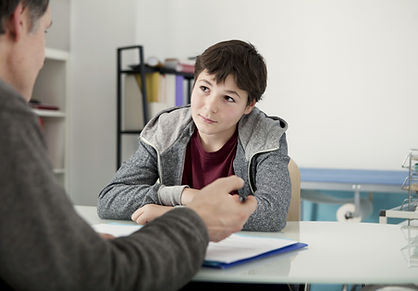
SPECIAL EDUCATION
Executive Functioning Mastery: Strategies to Boost Learning and Success in All Students
Get ready to transform your students into confident, independent learners with lifelong skills! This workshop will equip your team with the latest strategies to strengthen and grow students' executive functioning skills, including organization, planning, prioritizing, time management, attention, perseverance, and self-monitoring. Mastering these skills will help students succeed in school and life, improving mental health, self-esteem, and independence.
GRADES:
PreK-12
Practical Ways to Collect Data to Support IEP Goals
Free appropriate public education relies on meaningful student progress; on top of all of their responsibilities, how does a special education teacher also gather information to evidence student growth? This workshop focuses on efficient and practical strategies special education teachers can use to collect data to demonstrate the growth and progress of their students.
GRADES:
PreK-12
Understand Challenging Behaviors and the Impact of Trauma in the Classroom
We are in a national mental health crisis, with increasing anxiety, depression, and disruptive behavior among students at younger ages. This interactive workshop will explore behavior functions, the impact of trauma on learning, and strategies for managing challenging behavior with a trauma-informed approach.
GRADES:
PreK-12
Using Positive and Effective Interventions to Support Challenging Behaviors
Provide your paraprofessionals with the strategies they need to help support every student. This half day workshop focuses on practical strategies that paraprofessionals can use to address challenging behavior within the classroom.
GRADES:
PreK-12
Inclusive Teaching Strategies: Empowering General Ed Teachers to Support Students with Special Needs
Unlock the full potential of your students with special needs! Join us for an exciting workshop that provides a deeper understanding of special education classifications, IEP goals, and 504 plans, while exploring the science behind student learning. You’ll gain practical skills and strategies to support every student in your classroom to reach their full potential!
GRADES:
PreK-12
The School Mental Health Staff Members Role on the NJ Behavioral Threat Assessment & Management team (BTAM).
On1, 2022, Governor Phil Murphy signed N.J.S.A. 18A:17-43.4 into law, mandating the formation of a multi-disciplinary threat assessment team in each school. This team assists staff in identifying students with concerning behaviors, assessing their risk of violence or harm, and implementing intervention strategies. A school mental health provider, such as a psychologist, social worker, or counselor, is a required member, bringing valuable expertise to the team.
GRADES:
PreK-12
Special Educators: Everyone has preferred seating, now what?
Currently, mainstream education is seeing more special education students than ever before, facing a multitude of challenges. The general education population is also experiencing the aftereffects of virtual at home learning and the absence of traditional school structure. Many students' chronological ages are not matching their academic, social/emotional, behavioral, and developmental norms of two years ago. Now that all students are in need, educators are left to foster effective learning while addressing multiple learning styles and behaviors within their classrooms.
GRADES:
K-3 and 4-8
Neurodiversity and Inclusion in New Jersey Schools
NJA4454: is a law that was put into place for the 21-22 school year that requires school districts to include instruction on diversity and inclusion as part of implementation of New Jersey Student Learning Standards. Though racial inequality was the impetus for the law, inclusion and equity for disabled children is also included. New Jersey has some of the lowest rates of inclusion in the country. Concurrently, the neurodiversity movement has gained a great deal of momentum over the last year. Neurodiversity advocates are asking for schools to change to meet their needs.
GRADES:
K-12
Mindfulness in Special Education
Burn out is a very real challenge within all education but especially pressing when you are dealing with special education students. Mindfulness practices can help those that care for disabled children to be able to handle stressors with much more ease. There are also ways to adapt mindfulness for our most needy students.
GRADES:
Enhancing Instructional Strategies to Meet The Needs of ALL Students
Discover specific instructional strategies that address the needs of all learners, regardless of varying levels. Included in the discussion will be strategies specific to subject, classroom configuration and its effect on differentiation, and what teachers can do to better address each student's needs. Strategies that will be explored include: Utilizing real-world problems as an instructional tool to reach all students as well as conferencing with an individual student on writing and reading, and the extraordinary benefits of this time with them.
GRADES:
3-12
Special Education Engagement and Success
Engagement is key to learning success for all students. Creativity can help bring fun and success into the classroom, improving engagement and outcomes for all students. In this webinar, we will explore
GRADES:
K-8











